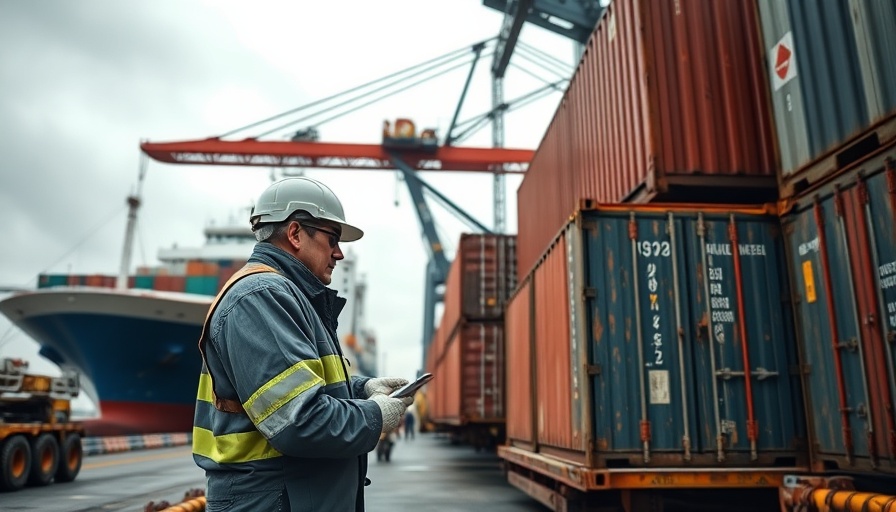
The Unexpected Consequences of Trump’s Tariff Policy
In an unusual twist in U.S. trade policy, the Trump administration's recent tariffs have ensnared an unexpected victim: Falklands toothfish. Once a prized item on dinner menus around the world, this deep-sea delicacy now faces barriers that could disrupt its supply chain. The implications extend beyond mere fish imports, as this case highlights broader issues regarding trade relations and business operations in a turbulent market.
A Closer Look at the Falkland Islands’ Toothfish Market
The Falklands, while remote, have become a crucial player in the global toothfish market where sustainability and fishing practices have become topics of fierce discussion. Attempts to capitalize on the booming seafood export market led to measures aimed at ensuring overfishing is avoided, yet tariffs threaten these established practices. This creates an opportunity for local businesses to voice their concerns about how changing trade policies can impact sustainable practices.
Trade Wars: A Double-Edged Sword for Local Businesses
The escalation of tariffs under President Trump’s administration has sparked robust debate among businesses in the Bay Area and beyond. For instance, importers of specialty goods, such as toothfish, might find themselves squeezed between supply costs and consumer pricing, making it difficult to maintain profits. The ripple effects can also be seen in local restaurants that rely on unique ingredients to differentiate their menus and attract customers. In a region known for its culinary diversity, this could alter consumer behavior significantly, as diners might see price increases or limited availability of their favorite fish dishes.
Exploring How Tariff Impacts Business Trends
Trade wars are known to cause unexpected fluctuations in market dynamics, influencing everything from employment trends to consumer behavior. Bay Area startups, especially those in the tech and food industries, often find themselves navigating these tricky waters. They must adapt to the challenges of rising costs, which could lead to scaling down hiring plans or pivoting on product offerings to cushion financial impacts. For entrepreneurs, understanding the subtle connections between international trade policies and local economic health is crucial for sustaining growth in uncertain times.
The Future of the Food Supply Chain
As globalization intertwines food supply chains across the globe, the Trump administration's tariff policies have raised critical questions about food security and availability. With tariffs in place, companies that import toothfish may need to identify alternative sources or adjust their business strategies to mitigate disruptions. Creative solutions such as enhancing local sourcing could become essential for restaurants aiming to preserve their menus and the experiences attached to their culinary offerings.
Looking Ahead: Navigating Changing Regulations
For businesses operating within the Bay Area—known for its entrepreneurial spirit and dynamic markets—keeping abreast of regulatory changes is crucial. The recent adjustments in trade regulations serve as a reminder of the importance of corporate governance and adaptability. Businesses may need to explore corporate social responsibility initiatives that demonstrate their commitment to sustainable practices, potentially becoming a key differentiator in their market.
Conclusion: Why Awareness Matters
This situation with Falklands toothfish is not merely a niche concern; it symbolizes larger trends affecting many sectors. Recognizing how tariff policies can create hurdles is just one insight for Bay Area entrepreneurs and business leaders. Staying informed influences strategic decisions, ensuring sustained visibility in rapidly changing markets. It’s imperative for local businesses to engage in discussions about these regulations, advocating for policies that nurture a balanced and competitive economy.
 Add Row
Add Row  Add
Add 



Write A Comment